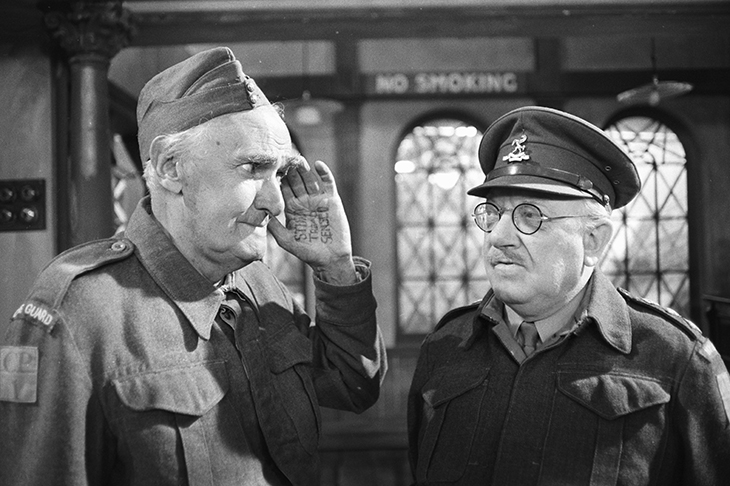On Saturday evening I showered, shaved and, prompted by a strange impulse, put on my going-out clothes. Then I cycled round to the nursing home.
The door of room 33 was ajar and she was fast asleep, mouth open, brow furrowed, as if she were trying to make sense of it all. The electric motor-powered mattress was raised and she was sitting up rather than lying, her head lolling towards the darkening window. On the bed table was a box of man-size tissues, a TV remote, a little pink sponge on a stick for sucking liquid out of, and a baby’s plastic drinking beaker in which her tea had gone cold. Poor Mum! Her tide has receded as far out as it does on the Thames estuary at Southend and her skeleton is showing. Tonight I noticed the ruler-straight radius bone in her forearm for the first time.
Two months ago, when she was carried up to this top-floor room overlooking the churchyard with a view of the bay beyond, they didn’t think she’d last the week. Since then she’s lain up here on the air mattress while seagulls fly past the window day and night — though sadly the window is too high for her to see out. A fortnight ago the GP thought it would be a matter of days. Last week a community nurse gave her another week, two at the outside. Guessing how long she has left to live seems to me a frivolous calculation, like paying 50p to guess the weight of the cake at a village fête. But they cannot seem to help themselves.
I like to go and see her at the end of the day. Since the morphine syringe driver was installed she’s been asleep more than awake and my habit has been to draw a footstool close to the bed and perch on it and lay my hand on hers and watch her sleeping, hollowed-out face while the room darkens around us. Before the syringe driver, she had moments of vivacity and humour (quite the gaiety girl) and sometimes impatience with the boredom generated by my devotion. But I, whom she loves, her idiot boy, haven’t been on the receiving end of a smile or impatient roll of the eyes for a long while now. She is either too saddened by the momentousness of it all, or she is engrossed by some remote fantasy or other. In any case, she is too weak to smile. So I am content to sit, also saddened by the momentousness of it all, and watch her sleeping face.
The silence in the room is broken only by her breathing, by the regular beeps of the morphine syringe driver, by the great sighing exhalations of her air mattress, and by the deliriously happy, well-paid voices of BBC presenters emanating from the television in the other occupied room on the top floor. And sometimes it is shattered by the thud and rattle of a food or drugs trolley coming out of the lift, then by the head and shoulders of a carer shackled to reality appearing in the doorway and saying brightly: ‘Don’t you want to put the light on?’
She had opened her eyes just once this evening, recognised me, blown me a little kiss, belched mildly, and said: ‘And will she be going to the funeral?’ Accustomed, since the morphine syringe driver, to her referring to herself in the third person, I gave her the honest answer that I doubted it. She accepted this gravely and closed her eyes once more.
Now we were in darkness, save what light came in from the corridor through the open door. A certain quality in her stillness made it seem perfectly feasible that her breathing might falter and cease at any moment. I held her hand and studied her breastbone as it rose and fell. Then I heard Captain Mainwaring briskly telling the men to fall in. The other occupant on the top floor was now watching our favourite programme. ‘Dad’s Army!’ I said, squeezing her hand to wake her.
I reached for the TV remote and there, on the big telly screen, was the Walmington-on-sea Home Guard shuffling to attention. I whacked up the volume. ‘Is it loud enough?’ I shouted. ‘Up a bit more,’ she whispered. It was the episode in which Captain Mainwaring falls in love. We’d seen it before, of course. Too weak to pay continuous attention, Mum closed her eyes.
Now Captain Mainwaring and his new love were tête-à-tête in the tea shop. It was the most wonderful acting. The woman said: ‘But I haven’t seen Mrs Mainwaring out and about lately, have I?’ ‘Mavis hasn’t been out of the house since Munich,’ muttered Mainwaring grimly. I laughed at this. Then I laughed and laughed as if this present nightmare wasn’t happening.
‘They’re very good, aren’t they?’ whispered Mum into her pillow.
Got something to add? Join the discussion and comment below.
Get 10 issues for just $10
Subscribe to The Spectator Australia today for the next 10 magazine issues, plus full online access, for just $10.
You might disagree with half of it, but you’ll enjoy reading all of it. Try your first month for free, then just $2 a week for the remainder of your first year.















Comments
Don't miss out
Join the conversation with other Spectator Australia readers. Subscribe to leave a comment.
SUBSCRIBEAlready a subscriber? Log in